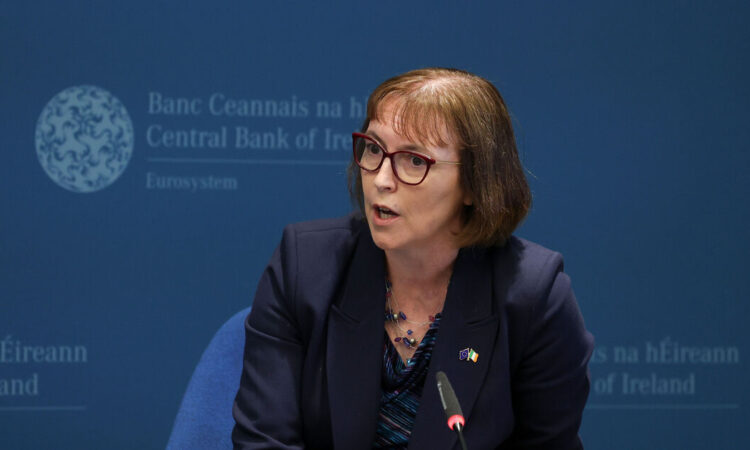
Italy, Poland and Sweden proposed candidates to lead the European Investment Bank (EIB), according to people familiar with the matter, kicking off an initial round of European Union horse-trading before bargaining over top jobs intensifies next year.
The deadline yesterday is just a week before the cut-off date for nominations to lead the European Central Bank’s (ECB) financial watchdog. Three women — Germany’s Claudia Buch, Spain’s Margarita Delgado and Ireland’s Sharon Donnery — are considered the favourites for that job. Both the EIB and ECB positions become available as of January.
The chair of the ECB’s Supervisory Board is the eurozone’s most senior banking regulator, directly overseeing the bloc’s major banks and endowed with a powerful voice to help shape rules that determine the industry’s structure. Whoever wins the job will contend with bankers who are chafing at what they regard as excessively intrusive oversight as they seek to lift share prices that have been battered since the 2008 financial crisis.
The current chair, Andrea Enria, is scheduled to step down when his five-year non-renewable term ends in December. Back when he won the job in 2018, the Italian was up against Donnery and Frenchman Robert Ophele.
Donnery oversees banks and insurers at the Irish central bank, but on the European level, she’s better known for formerly leading the ECB’s task force on non-performing loans. Back in 2017, the ECB was criticised by banks and some politicians for allegedly overstepping its mandate based on that group’s work. Yet Donnery’s tough tack helped European banks shrink their mountain of bad debt and set them on a more stable footing.
While not the biggest prizes in the EU pecking order, the influence the two EU roles have in financial matters still makes the push to win them worth it for member states.
This round may also give a foretaste of the future bargaining over the make-up of the European Commission, which could be up for grabs after the June 2024 EU parliament elections.
The various nominees also underscore how much the bench of talent has broadened in recent years, as the European Central Bank makes headway in increasing the share of women in leadership positions, with President Christine Lagarde the most prominent.
The jostling between big countries is likely to be fierce. The EU typically attempts to distribute top jobs fairly and take into consideration size and political affiliation of a country, with appointing women an increasing priority.






